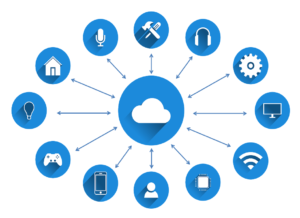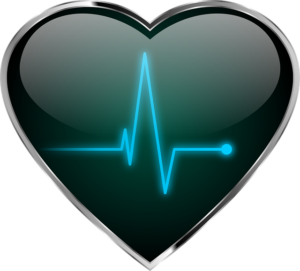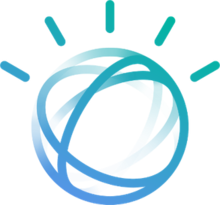5 Healthcare Technology Innovations That Are Advancing Men’s Health

In the month of June, the emphasis is on Men’s health. Today wearable technology is used when going running, cycling or visiting the gym. In current times, innovations in healthcare technology are introduced at an unrelenting speed and is also increasingly available. Perhaps in these current times, technology’s unbelievable potential and power is taken for granted.
Promoting men’s health and new innovations should be a priority this June. Alarming research from Harvard Medical School says men that emphasize their macho-ness are less likely to visit the doctor. Other reasons men tend to visit their physician less are due to a fear of diagnosis or examination.
The following 5 healthcare technology innovations will encourage men to take an active interest in their health:
1. Personalized Nutrition Assessment Tools
 According to the latest government data, around 100 million in the US are obese. These findings are supported by the National Health and Nutrition Examination Survey. Their research shows obese adults make up 39.6 percent of the population.
According to the latest government data, around 100 million in the US are obese. These findings are supported by the National Health and Nutrition Examination Survey. Their research shows obese adults make up 39.6 percent of the population.
Personalized nutrition assessment tools are on the rise. Interest is also growing in the scientific discipline, nutrigenomics technology. Nutrition technology firms now use personalized nutrition assessment tools to provide advice based on individual DNA. Personalized assessments are driving industry growth up to the next level.
An example of a personalized assessment is quick blood panels. Within just a few hours they are able to reveal nutritional deficiencies which are unique to the patients DNA.
2. Diet and Nutrition Apps for Mobile Devices
 On the same nutritional train, are diet and nutrition apps that help with food choice. Many of us suffer from food allergies, for example, drinking milk is a ‘big no!’ for me. The trouble is, I just love white chocolate! A solution for others like me could be the Whatsinit? App. This app also is very useful for people who have started a new diet.
On the same nutritional train, are diet and nutrition apps that help with food choice. Many of us suffer from food allergies, for example, drinking milk is a ‘big no!’ for me. The trouble is, I just love white chocolate! A solution for others like me could be the Whatsinit? App. This app also is very useful for people who have started a new diet.
This app is fairly simple to use too. First, select your specific requirements from the drop-down menu. Choices range from lactose intolerance to nut allergies. This app, without prompting, color codes food items using its huge database (including a vast selection of ingredients). Color coding is based on a stop light system. Green gives the go-ahead, meaning the food is totally safe (contains no trace of nuts or lactose). When a food is color coded in yellow, this means you should proceed with caution (this food may cause side effects). Red means the food is off limits.
3. Butterly IQ Portable Ultrasound Scanner for iPhone
 Among the many pluses of AI technology is it increases healthcare delivery. One of the roadblocks to doctors’ timely diagnosis is ultrasound machines are not always accessible. The Butterfly iQ is an ultrasound scanner that fits perfectly into your pocket. This portable ultrasound scanner enables the doctor to interpret images much quicker. The Butterfly iQ is as adaptable as it is accessible and easily connects to an iPhone. This device is approved by the FDA for 13 different indications. Currently, the Butterfly iQ can only be preordered by licensed providers.
Among the many pluses of AI technology is it increases healthcare delivery. One of the roadblocks to doctors’ timely diagnosis is ultrasound machines are not always accessible. The Butterfly iQ is an ultrasound scanner that fits perfectly into your pocket. This portable ultrasound scanner enables the doctor to interpret images much quicker. The Butterfly iQ is as adaptable as it is accessible and easily connects to an iPhone. This device is approved by the FDA for 13 different indications. Currently, the Butterfly iQ can only be preordered by licensed providers.
4. HeartFlow Coronary Artery Disease Detection
 HeartFlow is a non-invasive, cloud-based, deep-learning device used to monitor MRI’s to measure blood flow and scan for heart disease. This technology works at a greater speed and is far more accurate than traditional technology. HeartFlow uses CT scans, computer-generated blood flow plus a deep learning algorithm to create a 3D map of the heart. This enables detailed analyses of blockages and blood flow. This cuts down on unnecessary invasive angiograms by 80 percent. This device comes with 86% diagnostic accuracy which is more than the 65% record for coronary CT angiography. Today, the HeartFlow is used across the country in more than 40 hospitals.
HeartFlow is a non-invasive, cloud-based, deep-learning device used to monitor MRI’s to measure blood flow and scan for heart disease. This technology works at a greater speed and is far more accurate than traditional technology. HeartFlow uses CT scans, computer-generated blood flow plus a deep learning algorithm to create a 3D map of the heart. This enables detailed analyses of blockages and blood flow. This cuts down on unnecessary invasive angiograms by 80 percent. This device comes with 86% diagnostic accuracy which is more than the 65% record for coronary CT angiography. Today, the HeartFlow is used across the country in more than 40 hospitals.
5. Healthcare Artificial Intelligence Technology
 Physicians working in the cancer section of the hospital often take several weeks to develop a treatment plan. The IBM Watson, working on AI technology takes just a couple of minutes. This device is trained by experts at the Memorial Sloan Kettering Cancer Center. This technology consumes a huge amount of medical literature including over 300 medical journals, 200 textbooks, and nearly 15 million pages of text.
Physicians working in the cancer section of the hospital often take several weeks to develop a treatment plan. The IBM Watson, working on AI technology takes just a couple of minutes. This device is trained by experts at the Memorial Sloan Kettering Cancer Center. This technology consumes a huge amount of medical literature including over 300 medical journals, 200 textbooks, and nearly 15 million pages of text.
155 hospitals and health organizations use the IBM Watson. Deborah DiSanzo, Watson Health general manager says, this Watson’s knowledge of the types of cancer is also growing. Research by the UNC Lineberger Comprehensive Care Center using the device for Genomics evaluated tumor sequencing data. The analysis completed by Watson was over 99% accurate in pinpointing the treatment proposed by the human tumor board.
For more about women’s health innovations take a look at: https://www.merraine.com/5-of-the-latest-health-technologies-for-women/
By: Jonathan Gordon
